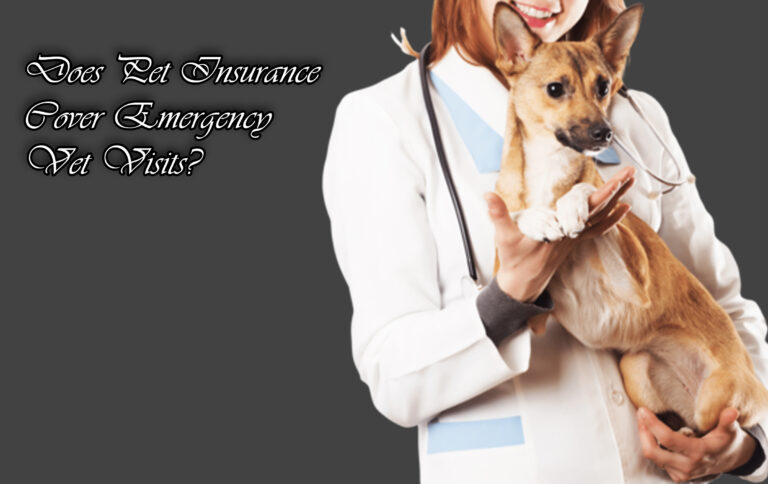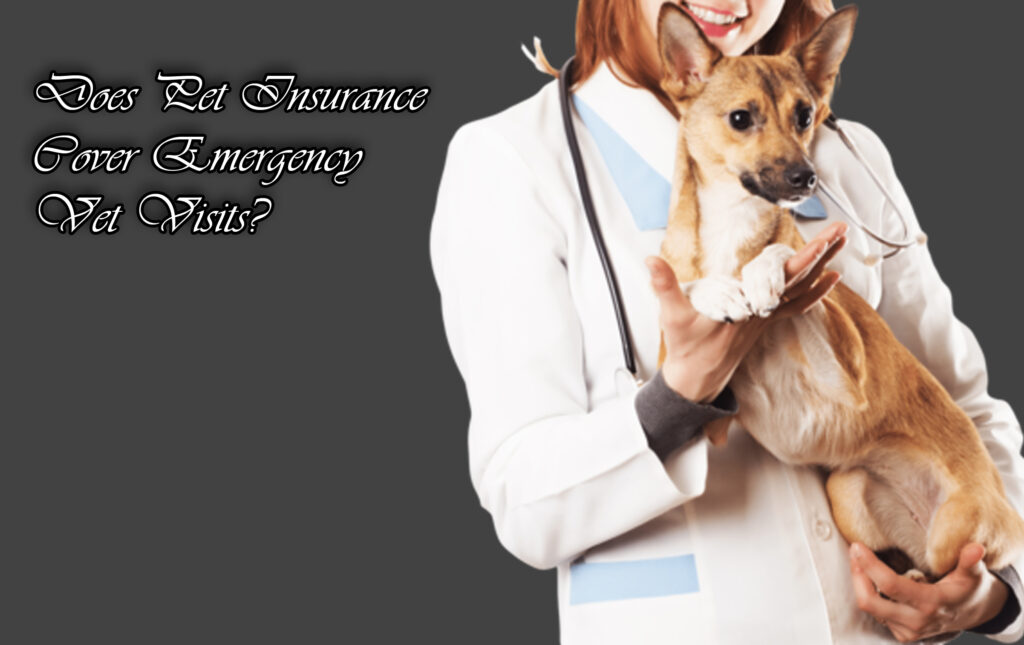
Does pet insurance cover emergency vet visits? No pet owner wants to face the stress of an emergency veterinary visit. Unfortunately, accidents, sudden illnesses, and unexpected complications can happen at any time, without prior notice.

Whether your dog has ingested toxic substance, your cat has difficulty breathing, or your pet suffers trauma from a fall or accident, the emergency vet care becomes important.
These visits often require immediate diagnostics, overnight stays, medications, or even surgery, all of which can be emotionally overwhelming and financially draining.
With the knowledge that emergency vet bills can quickly run from $500 to over $3,000, many pet owners do wonder, “Does pet insurance cover emergency vet visits?” The good news is that most pet insurance policies do cover emergency visits, as long as you have an accident or accident-and-illness plan.
What Is Considered an Emergency Vet Visit?
An emergency vet visit occurs when your pet experiences an unexpected, severe health problem that requires immediate medical attention.
What’s more, emergency services are often available 24/7 at specialized veterinary clinics or animal hospitals and usually involve rapid diagnostics, critical care, and advanced treatment methods. Here are some of the common reasons for emergency vet visits:
- Poison ingestion (e.g., chocolate, grapes, medication)
- Sudden inability to walk
- Heatstroke or hypothermia
- Severe vomiting or diarrhea
- Difficulty breathing or choking
- Bloating (gastric torsion)
- Car accidents or physical trauma
- Seizures or collapse
However, since these emergencies require fast action to save a pet’s life or prevent serious damage, the costs can quickly add up, especially for overnight observation, blood tests, imaging, or emergency surgery.
Does Pet Insurance Cover Emergency Vet Visits?
Yes, most accident-only and accident & illness pet insurance plans cover emergency vet visits, as long as the event meets the conditions outlined in your policy. Here are some of the key factors that determine what the coverage includes:
- Type of plan: Accident-only plans cover injuries from trauma, poisoning, or accidents. On the other hand, Accident & illness plans cover both injuries and emergency illnesses like seizures, infections, or organ failure.
- Pre-existing conditions: If the emergency results from a condition diagnosed before your policy began, treatment may be excluded from coverage.
- Policy activation and waiting period: Emergencies that occur before your policy starts or during the initial waiting period are not covered.
- Deductibles and reimbursement: After you meet your annual deductible, your insurer will typically reimburse 70%–90% of eligible costs, and it depends on the policy you selected.
Emergency vet visits are covered when they are medically necessary and not the result of excluded events.
What Does Emergency Pet Insurance Typically Cover?
When it comes to emergency visits, pet insurance can offer comprehensive support by covering a wide range of treatments, services, and diagnostic tools.
This allows pet owners to make care decisions based on medical need, not the cost itself. Here are the common covered expenses included:
- Emergency surgery
- Medications administered on-site
- IV fluids and oxygen therapy
- Physical exam and consultation fees
- Hospitalization and overnight monitoring
- Diagnostic testing (bloodwork, X-rays, ultrasounds)
- Emergency dental treatment (e.g., due to trauma)
- Follow-up care directly related to the emergency
However, it’s important to read your policy closely. Some expenses, like boarding, routine care, or complications from elective surgery, may indeed be excluded.
How to Make Sure Emergency Visits Are Covered
To ensure your pet is fully protected in the event of an emergency, it’s important you have a solid understanding and how ways to manage your pet insurance policy. Here are some of the steps to take:
- Start by signing up early before any symptoms appear or injuries happen. This avoids issues with pre-existing conditions.
- Consider getting an accident & illness plan for full emergency coverage, not just accident-only.
- Don’t assume coverage starts immediately. It’s important you know your policy’s activation time.
- Also, understand how much you’ll need to pay out-of-pocket and how much you’ll get back.
- Ensure you use licensed veterinarians. Most policies require care to be provided by licensed vets for coverage to apply.
Lastly, always save invoices, medical reports, and discharge summaries to support your insurance claim.